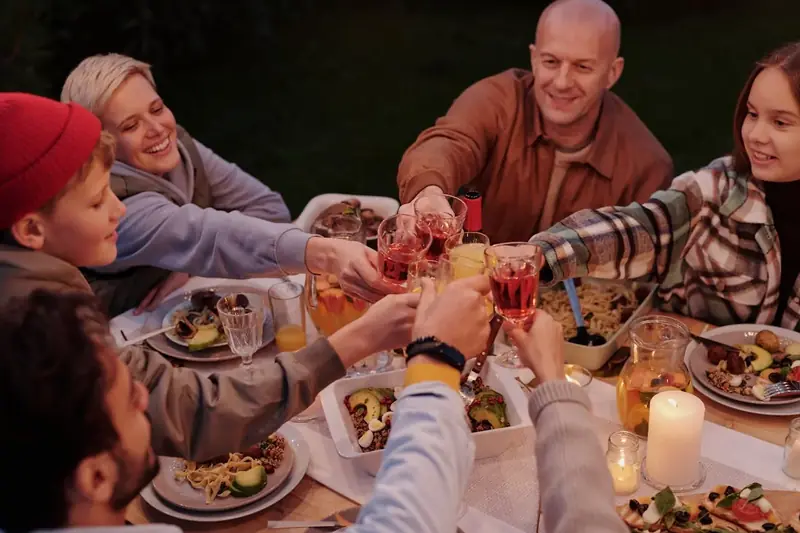
We love to eat together. Lunches, dinners, and festive gatherings with friends and family are still common today. All these meals hold significant power.
The desire to share food goes back to times before our species even existed. Chimpanzees and bonobos, our closest primate relatives, shared food within their social groups. However, giving food to those around us is not the same as consuming it together. This is the view of sociologist Niklas Nyuman from Uppsala University in Sweden.
“You can distribute food as an object without sitting down and consuming it with others,” the researcher noted. According to him, humans have adapted to complex social relationships, as reported by BBC.
How Did It All Begin?
The first communal meal likely took place around a campfire. No one knows for sure when humans or their ancestors first learned to cook. Estimates vary widely, with the oldest predicted date being 1.8 million years ago.
Robin Dunbar, a biological anthropologist at the University of Oxford in the UK, explained that once people sat around the fire—a “warm, bright beacon in the dark”—they might suddenly find they weren’t sleeping any longer than usual. Those extra hours could have been golden opportunities for social bonding over food.

According to Robin Dunbar, shared meals are linked to greater well-being. His 2017 study conducted among residents of the UK showed that frequent meals with others correlate with higher life satisfaction and a greater number of reliable friends.
The Pros and Cons of Shared Meals
“Eating activates the endorphin system in the brain, which is the primary pharmacological basis for friendly relationships in primates and humans. Sharing a meal in a group enhances the effect of endorphins just like running together does. This is because synchronized activity doubles the production of endorphins,” Dunbar explained.
Journalists Cynthia Graber and Nicola Twiley found that eating the same food at the same time makes people more trusting of their dining companions. Moreover, those who share the same dishes are quicker to find satisfactory solutions to problems than those who don’t.
However, sharing a meal is not a simple act. Banquets where people consume vast amounts of food together can be carefully orchestrated displays of subordination and control.
“If you ask people, they will say they enjoy sharing food with friends and loved ones. But it can also be a terrible experience. It can be a place of control and dominance,” Niklas Nyuman noted. Meals where someone regularly criticizes your choices or your weight are unlikely to bring joy.
In one of his research projects focused on shared meals among the elderly in Sweden, Nyuman discovered something interesting. He shared, “We deliberately asked if they were bothered by eating alone. Most confirmed they were not.” The participants enjoyed eating with others, but this particular group did not feel the emptiness as acutely as one might expect.
